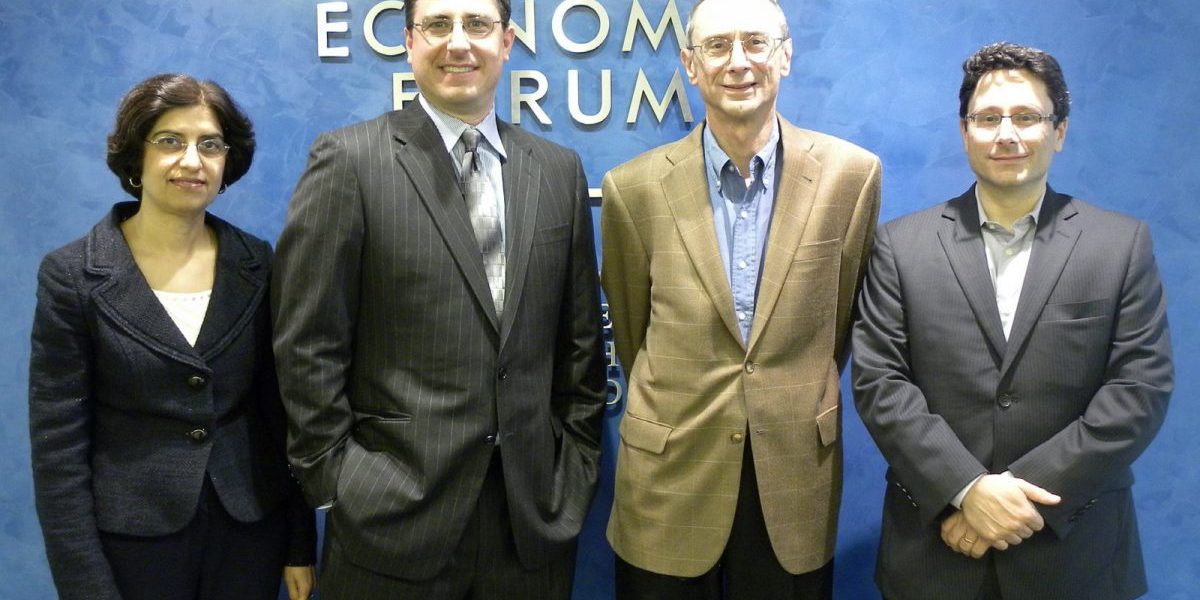According to Albert Einstein’s Danish colleague, “prediction is very difficult, especially if it’s about the future”. True to form, 2008 has opened to a cacophony of disagreement over what the year holds. Are you confused? Just take the recent commentary on the US economy, which predicted that the Fed was poised for “an aggressive rate cut”. This came to pass a couple of weeks ago, showing that those who know the US economy best are concerned. This may be because the US economy has responded poorly to the full percentage point of relief injected by the last quarter of last year.
Then there is the sub-prime debacle which, the US treasury secretary says, is set to worsen, not ease off, this year. Two Harvard academics argue that the trouble in US money markets is as severe as any of the major financial crises to have struck an industrialised country in recent history.
The World Economic Forum’s forecasts are also gloomy, saying the global outlook, both politically and economically, is at its worst in the past decade, driven by the US credit-market fallout. That decade includes September 11, 2001.
Yet, according to the highly influential Institute for International Finance (IIF), the US will avoid recession, capital flows into emerging markets will not slow significantly, and the global fight against inflation (including in China, where it is reaching 10-year highs) will meet with success. And, according to the World Bank’s Global Economic Prospects, a more decoupled emerging market group (mainly in Asia) will put in another good year’s growth performance, cushioning the global effects of a slowdown in Organisation for Economic Co-operation and Development (OECD) countries, especially the US.
Who to believe and what to make of it all? The last assertion is of course welcome – long may that trend continue. Unfortunately for us, the average isn’t important – the vast majority of our trade (especially exports) is still with the slowing economies of the US, Europe and Japan. We certainly import far more from India and China than five years ago, but exports to them, despite their hunger for our minerals and metals, have grown disappointingly slowly.
But the real headache the threat of a US recession brings has to do with flows of capital, not goods and services. The strength of the IIF claim that emerging market inflows will slow only slightly this year is critical. “Hot” capital, on which we rely heavily, is usually the first thing to disappear from emerging markets when Harvard academics come out so strongly on the downside.
Nevertheless, if the IIF’s prediction rests on emerging Asia, it is probably right – and in line with the World Bank’s view that what happens in the OECD countries matters less for growth in Asia than ever before.
But SA is a long way – geographically and more – from emerging Asia. Our share of global capital flows is minuscule, so even a small reduction in the global pot could spell bad news for us. And few Asian economies are running an external deficit anywhere near 8% of gross domestic product.
Everyone surely has a good sense of the potential problems should the deficit become exposed. As in the past, the rand will plummet, and inflation and therefore interest rates will spike. During our mini-crisis in 2001, this chain-reaction didn’t disrupt growth; we simply endured a brief difficult patch, wherein exchange rate and interest rate adjustment proceeded “according to plan”. But back then we weren’t borrowing as heavily from the rest of the world.
The threat to the currency and wider economic activity in SA from increasingly jittery fund managers is serious, which is why the Treasury intends to run a small surplus for the next little while, and why the Reserve Bank wishes to beat inflationary expectations back down to 4% in a hurry. Should these goals be changed, or the custodians of our economic and financial stability fail in their missions, exporters, importers, and mostly everyone else could be heading for an unpleasantly volatile period.
The nebulous domestic outlook does not help. Political uncertainty is creeping steadily upwards; most people are no less clear now than they were before Polokwane on how the relationship between Luthuli House and the Union Buildings will develop. Comments made by new African National Congress National Executive Committee members suggest it will be complicated, at best.
This appears especially true of economic policy. Long before Jacob Zuma assumes the state throne, serious questions are being asked – by influential members of the ANC’s new National Working Committee – of our fiscal and monetary prudence since 1996. Some don’t like inflation-targeting, and would prefer greater public spending, deficit or not.
Should the worst-case global scenario emerge, let’s hope there aren’t simultaneous changes to our policy approach. If so, we could be set upon a very choppy course.








